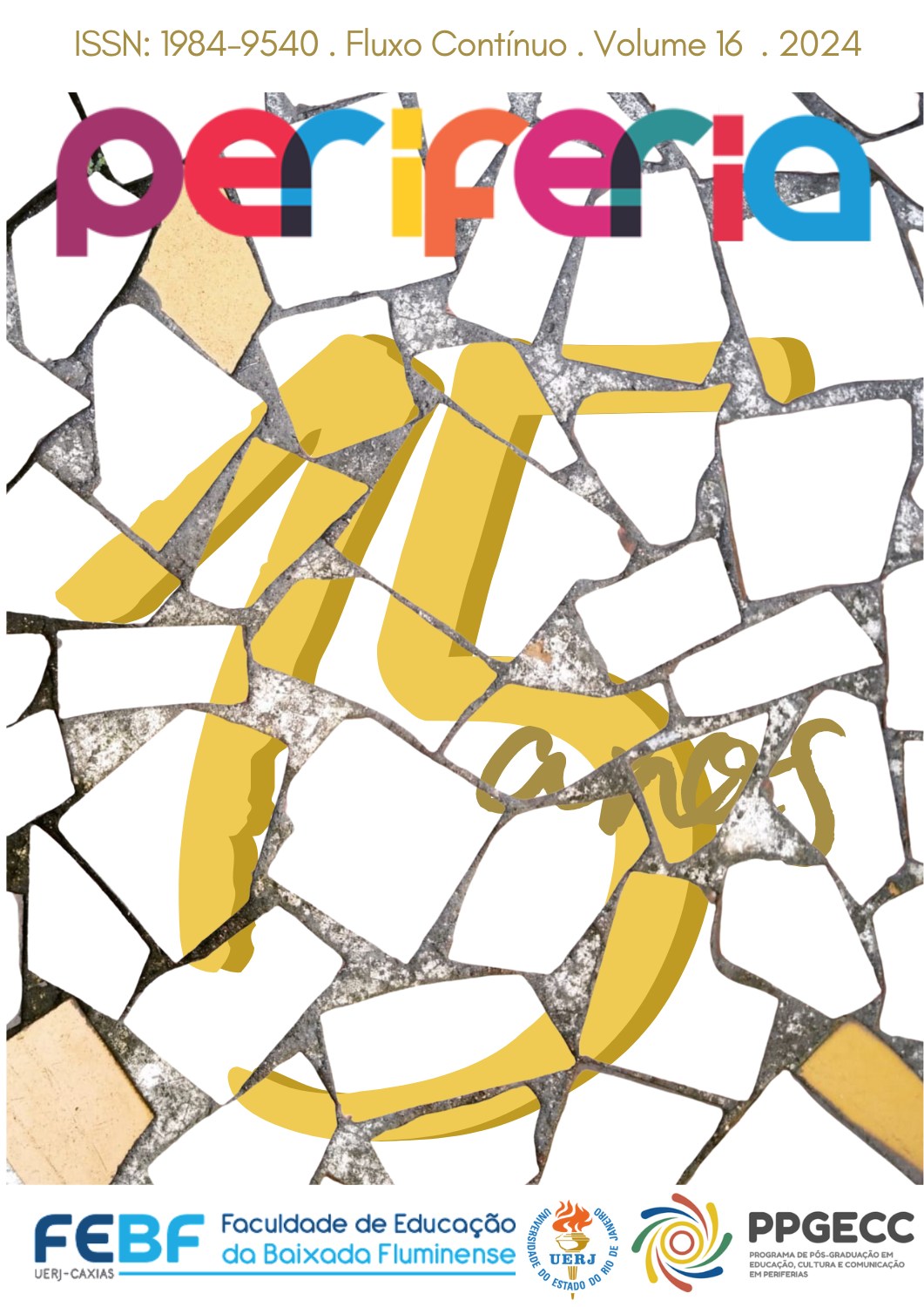CONTRIBUIÇÕES TEÓRICO-CRÍTICAS DA INTERSECCIONALIDADE:
uma práxis crítica
DOI:
https://doi.org/10.12957/periferia.2024.82593Palavras-chave:
Interseccionalidade, Práxis crítica , RelacionalidadeResumo
Esta é uma resenha sobre a obra "Interseccionalidade", publicada no ano de 2021 pela parceria entre Patricia Hill Collins e Sirma Bilge, na qual as autoras desenvolvem o conceito de interseccionalidade e elucidam questões sobre sua utilização. Seria a interseccionalidade um método de pesquisa, uma ferramenta de análise ou uma vertente do feminismo? Quais são os usos da interseccionalidade e suas principais contradições? Esses questionamentos apontados na obra são uma valiosa contribuição teórico-crítica na busca da compreensão das opressões e problemas sociais, capturando a dinâmica existente entre os eixos de subordinação. A obra busca entender como raça, classe, gênero, capacidade física, nacionalidade, sexualidade, status de cidadania, etnia, faixa etária e demais categorias desvelam a complexidade do corpo como construção social. Em síntese, este é um livro que provoca uma imersão nas complexidades da interseccionalidade, sobretudo, na sua função enquanto ferramenta capaz de desvendar os mecanismos de opressão e promover a justiça social.
Referências
COLLINS, Patricia Hill; BILGE, Sirma. Interseccionalidade. Tradução de Rane Souza. 1. ed. São Paulo: Boitempo, 2021.
RATTS, Alex; RIOS, Flávia. Lélia Gonzalez. São Paulo: Selo Negro, 2010.
Downloads
Publicado
Como Citar
Edição
Seção
Licença
Autores que publicam nesta revista concordam com os seguintes termos:- Autores mantém os direitos autorais e concedem à revista o direito de primeira publicação, com o trabalho simultaneamente licenciado sob a Creative Commons Attribution License que permitindo o compartilhamento do trabalho com reconhecimento da autoria do trabalho e publicação inicial nesta revista.
- Autores têm autorização para assumir contratos adicionais separadamente, para distribuição não-exclusiva da versão do trabalho publicada nesta revista (ex.: publicar em repositório institucional ou como capítulo de livro), com reconhecimento de autoria e publicação inicial nesta revista.
- Autores têm permissão e são estimulados a publicar e distribuir seu trabalho online (ex.: em repositórios institucionais ou na sua página pessoal) a qualquer ponto antes ou durante o processo editorial, já que isso pode gerar alterações produtivas, bem como aumentar o impacto e a citação do trabalho publicado (Veja O Efeito do Acesso Livre).







